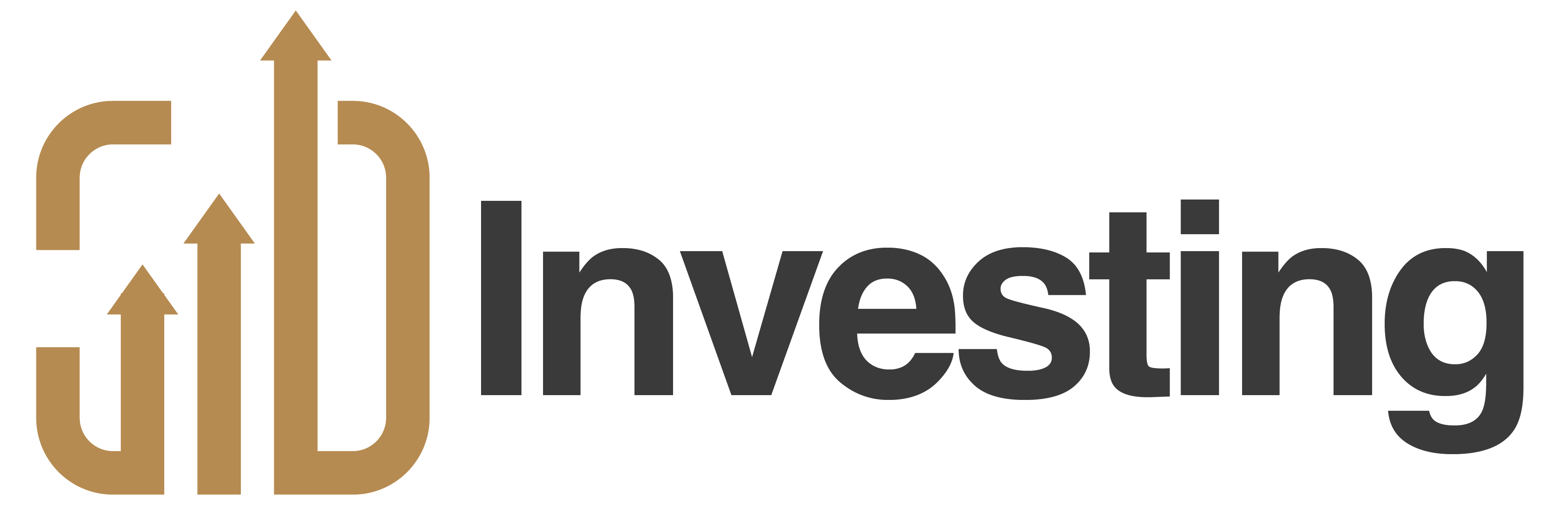Choosing the right business structure isn’t flashy, but it does the heavy lifting behind the scenes. For vloggers turning their passion into income, how you structure things affects your liability, taxes, and long-term control.
Start small? A sole proprietorship might make sense. It’s simple, no paperwork, no separate tax return. But here’s the catch: you’re personally on the hook if something goes wrong—financially or legally.
LLCs (Limited Liability Companies) offer a nice middle ground. You keep the flexibility but gain liability protection. It’s popular for creators who are making steady income and want to separate personal life from business. Plus, you can choose how you want to be taxed—pass-through or as a corporation.
Then there’s incorporation. Going full-blown S-corp or C-corp can bring tax perks and investor interest, especially if you’re scaling fast, hiring, or looking for brand partnerships. But set-up costs spike, and the admin load is heavier.
When do you switch? As soon as you’re earning consistently and have something to protect—whether it’s your content library, your name, or your cash flow. Talk to an accountant before flipping the switch. It’s not just about growth. It’s about protecting what you’ve built.
Starting a vlogging business is more than just hitting record. If you’re serious about making money—or scaling up—you need to get your legal ducks in a row. That starts with understanding your registration requirements. At the federal level, most vloggers in the U.S. will want to form a legal business entity, like an LLC or sole proprietorship. That gives structure and helps limit personal liability. Your state may require additional registration—some need you to file a Doing Business As (DBA) name or get a seller’s permit depending on how you monetize. And don’t skip the local rules; cities and counties can have business licensing or zoning hoops to jump through.
Next, get an Employer Identification Number (EIN). The IRS gives these out for free, and while the name suggests you need employees, you actually need one even if you’re just a one-person shop. It’ll keep your personal info separate and is essential when opening a business bank account or filing taxes.
Why does all this matter? Because your brand and your identity shouldn’t be one and the same. Keeping your business legally distinct shields you if anything goes sideways and helps you look legit to sponsors, platforms, and collaborators.
Before you slap a name or logo on your vlog, take a beat. Conducting a trademark search isn’t just red tape—it’s protection. Someone out there may already be using the name you love. Start with the USPTO’s database (TESS). It’s free, fairly straightforward, and shows you if what you’re planning is already taken or too close for comfort. Skip this, and you might find yourself rebranding mid-growth, which is messy and expensive.
Once the coast is clear, you can file a trademark application. It’s doable on your own via the USPTO site, but if your name holds long-term value (think merch or future spin-offs), consider a trademark attorney. Filing includes specifying what your trademark covers (i.e., digital content, apparel) and proving you’re actually using it or intend to. Fees start around $250, and expect a few months of back-and-forth with the agency.
Quick refresher while we’re here: Trademarks protect brand identifiers—names, logos, etc. Copyrights cover creative works like videos, music, and scripts. Patents are for inventions, usually tech or utility-based. So unless you’ve invented a camera tripod that folds into a camping chair, you’re likely dealing with trademarks and copyrights.
Think of trademarks as guardrails. They’re legal shields that ensure the brand you build stays yours.
Why Handshake Deals Lead to Trouble
Starting a vlogging channel with a friend or partner feels exciting—and fast. You hit record and figure the rest out later. But skipping formal agreements early on can mean real problems down the line. Handshake deals might feel natural in the beginning, but when the audience grows, money starts flowing, and expectations shift, trust alone doesn’t cut it.
Here’s what needs to be on paper: equity splits, roles and responsibilities, decision-making rights, and a clear vesting schedule. If one co-founder walks away six months in, do they still get half of everything? Vesting prevents that. Undefined roles lead to power struggles. Unclear ownership wrecks future deals with sponsors, investors, or buyers.
Vlog teams that skip this step end up in disputes that kill momentum—or the business entirely. Locking in expectations now avoids pain later. It might feel awkward to formalize things early, but doing it right means you can actually focus on what matters: building and growing.
Industry-Specific and Location-Based Requirements
Running a successful vlog isn’t just about content anymore—especially if you’re vlogging as part of a business, studio, or monetized production. Local laws are catching up, and creators need to get serious about compliance. Depending on where you film, you might need zoning approvals, sound permits, or even business licenses just to operate legally from your home or studio.
Health permits matter too, especially for food vloggers or those covering wellness, beauty, or lifestyle. If you’re demoing skincare or handling cooked meals on camera, expect scrutiny. In some cities, that means inspections. In others, it’s simply a matter of registering with a local authority.
Then there’s the paper trail: licenses that need renewal, permits that expire, and regulations that shift. Staying organized here avoids fines, takedowns, or worse—a forced pause on content creation. The best creators aren’t just creative. They’re also buttoned up behind the scenes.
Bottom line: if you’re taking your vlogging seriously in 2024, don’t treat compliance like an afterthought. Stay local, stay legal, and stay ahead.
Contracts Aren’t Optional—They’re Your Safety Net
Whether you’re working with clients, bringing on vendors, or hiring freelancers, contracts aren’t just paperwork—they’re protection. In 2024, as more creators scale operations or build teams, having clear terms in writing is non-negotiable. Ambiguity leads to frustration, delays, and payment disputes. Clarity, on the other hand, keeps the gears turning.
At a minimum, every contract should include payment terms (how much, when, and what triggers extra fees), IP ownership (who owns what once the work’s done), and clean termination clauses (what happens if someone wants out early). Miss one of these, and you could end up in murky territory fast.
Think of it like this: small projects with minimal risk? You might get away with a solid DIY template. But the moment cash, brand reputation, or long-term rights are on the line, you want legal eyes on the document. A good lawyer now can save you from paying five times more in damage control later.
Contracts aren’t about mistrust—they’re about making sure everyone walks in with the same expectations and walks out with mutual respect, no surprises attached.
Hiring W-2 vs. Working with 1099 Contractors
If you’re growing a team to support your vlogging empire, there’s one decision you can’t wing: W-2 employees or 1099 contractors? Each comes with a different set of obligations and consequences.
W-2 employees are on your payroll. You withhold taxes, pay into unemployment, and follow labor laws closely. You set their hours, train them, and provide the tools they use. It’s more paperwork, but more control.
1099 contractors, on the other hand, are independent. They bring their own gear, set their own hours, and control how the work gets done. You don’t withhold taxes or offer benefits, but you also don’t get to manage them like employees.
Here’s where it gets tricky: misclassifying a worker—calling them a contractor when they legally meet the employee criteria—can land you in a legal mess. Fines, back pay, audits. It’s not worth the shortcut.
To stay on the right side of the law, draft clear employee handbooks if you hire staff. Understand at-will employment laws in your state. Document your working relationships and review them with a labor attorney if needed. And keep a close eye on evolving guidelines from the Department of Labor. The rules aren’t just red tape—they’re your liability shield.
Understanding Your Tax Obligations as a Vlogger
Whether you’re making five figures or just starting to monetize, taxes aren’t optional—and ignoring them can get messy fast. As a creator, you’re essentially self-employed, which means you’re on the hook for federal, state, and sometimes local taxes. That includes not just income tax, but also self-employment tax (which covers Social Security and Medicare). It hits harder than most W-2 jobs, since there’s no employer splitting the costs with you.
Don’t forget sales tax if you’re selling merch or digital products—some states require it, and rules vary depending on where your customer lives. If you start hiring help, like editors or assistants, payroll taxes enter the mix too.
Best move? Set yourself up with a tax advisor or accountant early. Trying to retroactively organize a year’s worth of income and expenses during April crunch-time is a rookie mistake. A pro will help you structure things cleanly, make quarterly payments if needed, and spot deductions you might miss. Video gear, business mileage, home office—there’s a lot you could write off if you track it right.
Bottom line: treat taxes like part of your workflow. It’s just as critical as uploading a new vlog.
Protecting What You Create: The Basics of IP for Vloggers
It’s not just about the videos anymore—it’s about the assets behind them. If you’re building a brand as a vlogger, it’s time to start thinking like a business owner. First step: figure out what you actually own. That includes your logo, channel name, unique catchphrases, series titles, even your editing style or original music. These fall under trademarks (for brand ID), copyrighted content (videos and scripts), and potential inventions (like production tools or gear hacks).
Copyright happens automatically when you create something original, but registering it gives you legal ammo if someone steals it. Same goes for trademarks—you can operate without them, but you’re taking a gamble. Filing with the U.S. Copyright Office or USPTO isn’t glamorous, but it’s a solid defense if your work ever gets cloned. If you’re serious, grab an attorney or use a legit online service to walk you through it.
And don’t forget NDAs (non-disclosure agreements). If you’re collaborating—on merch, scripts, or new channels—lock down your ideas early. A basic NDA protects you from leaks and gives you leverage if you get burned. Same with confidentiality clauses. These aren’t just for Silicon Valley—creators need them, too.
Get your paperwork in order. It’s not fun, but it’s freedom.
Once a vlogger gains traction, the next logical step is to think beyond content. Growth, partnerships, and even exit strategies aren’t just lofty conversations—they become necessary ones. If you’re building a brand, not just a channel, you need to think like a business.
That starts with staying audit-ready. Keep financial records clean and track every cent earned—from brand deals to affiliate links. Legal paperwork? It matters. LLCs or S-corps, content rights, contracts with collaborators—this stuff can save your skin later. If there’s even a whisper of partnership or acquisition, sloppy books or vague ownership will scare off serious players fast.
Risk is a real part of the creator playbook now. If you’re hosting events, selling merch, or filming in public—you’re exposed. Liability insurance and proper business structure aren’t luxuries. They’re the minimum. Make sure you’re not one video away from legal or financial blowback just because you missed a basic protection.
Bottom line: Scaling as a vlogger means acting like a pro off-camera, too. For those looking to take the leap, don’t miss our feature: Scaling Your Startup: Key Strategies for Long-Term Growth.
Legal Isn’t the Fun Part—But It’s What Lets You Keep the Fun Parts
Vlogging might start with a camera and an idea, but it quickly becomes a business. If you don’t take care of the legal side early, you’re basically building on sand. That means registering your brand, protecting your content, and having clear contracts for things like sponsorships, collaborations, or hiring editors. Skip this, and you’re not just risking monetization—you could lose everything you’ve built.
Copyright strikes, brand name conflicts, or a deal gone sour can all derail a channel in a heartbeat. The creators thriving in 2024 aren’t just talented—they’re protected. LLCs, trademark filings, usage rights—this is the stuff that separates a hobby from a lasting enterprise.
None of it’s flashy. But the boring bits keep you in the game long enough to earn an audience, lock in real deals, and build something solid. Treat your vlog like a business from day one, and you won’t scramble later when the audience—and the money—shows up.




